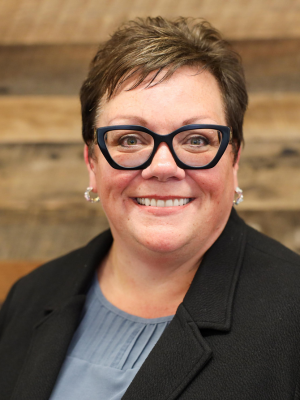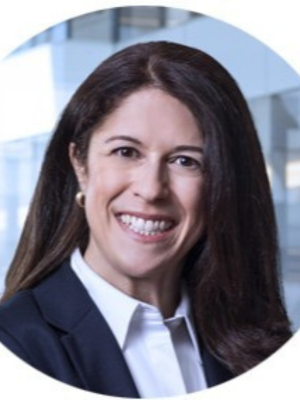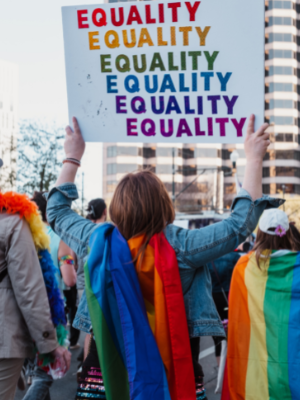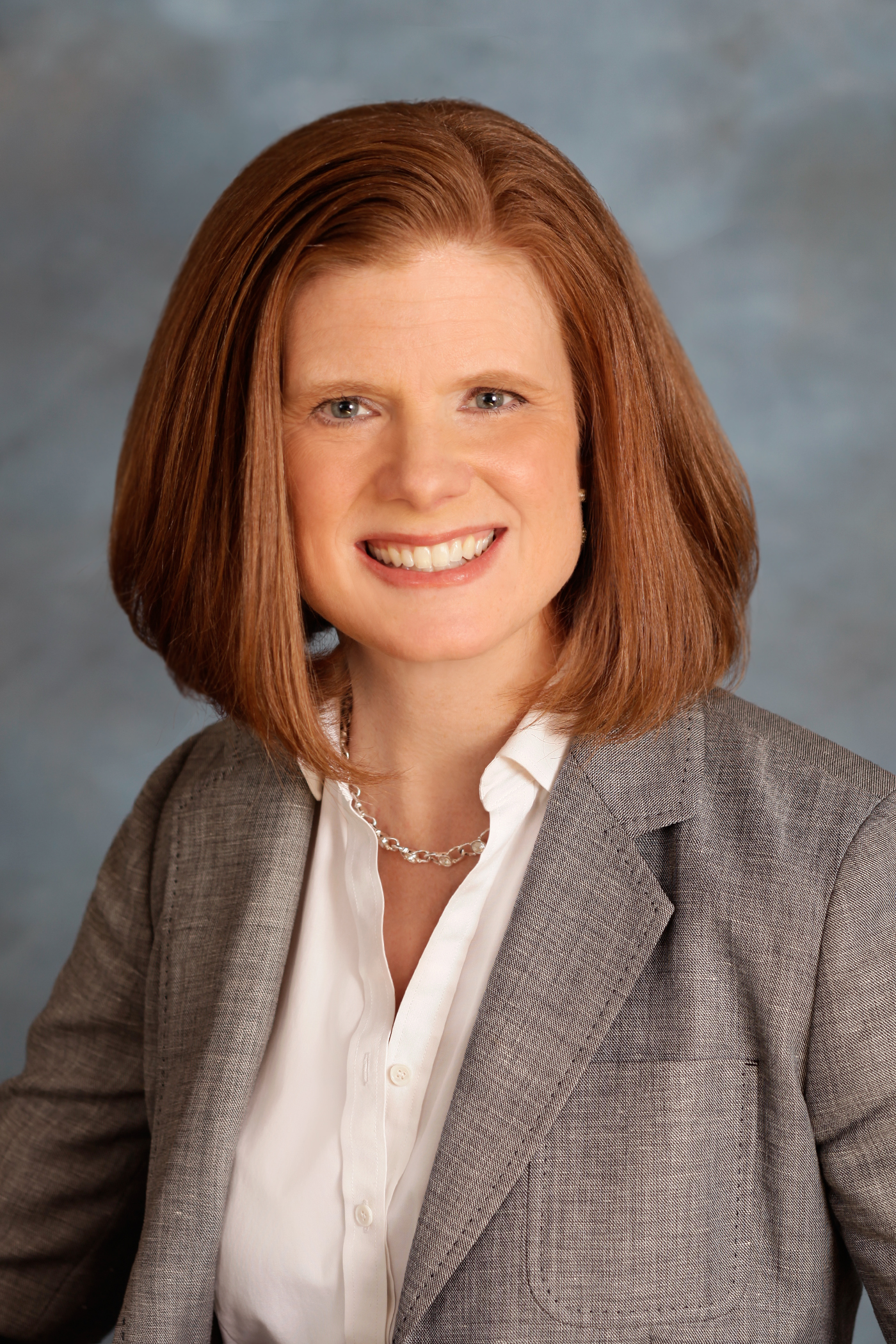 “For me, it’s all about the connections,” says Kelly Odenheimer. “Whether it’s connecting with customers, employees, or colleagues, helping people and building those relationships are what drive me.”
“For me, it’s all about the connections,” says Kelly Odenheimer. “Whether it’s connecting with customers, employees, or colleagues, helping people and building those relationships are what drive me.”
Odenheimer is a leader who believes that true success and fulfillment come from more than just professional milestones. She shares how cultivating deep connections, embracing difficult conversations with confidence, and offering genuine support are the cornerstones of her approach to making a meaningful impact in both her career and personal life.
Driven by Connection
With a thirty-year tenure at ETS, Odenheimer emphasizes the importance of finding meaningful connections in her work as the key to a successful and fulfilling career. From her beginnings as a temp reconciling bubble answer sheets to working in executive communications, marketing and sales, Odenheimer consistently sought to understand how her role contributed to helping others. Now as the head of ETS’ global customer care team, she continues to prioritize the impact of her work, striving to ensure that every interaction adds value and supports the success of both her team and the customers they serve.
“In my current role, I work with organizations in the US and India, fostering global connections with people who are all working towards the same goal. My focus is on aligning teams, getting everyone on the same page, and motivating them to achieve our shared objectives.”
Odenheimer highlights kindness and a willingness to listen as integral to building those connections.
“Sometimes we forget as we climb the corporate ladder the importance of listening. While we may feel compelled to speak up in meetings to maintain our presence or appear to provide value, there is so much more benefit in listening.”
A leader who prioritizes listening and seeks to offer help first not only builds strong relationships but also fosters a shared sense of unity and collaboration.
“I always say, ‘I can’t do it all, but I can give it my all.’ That’s why it’s crucial for me to engage the right people and build relationships rooted in kindness and authenticity, so they feel inspired to give it their all too.”
Global Leadership is About Transparency and Trust
As a leader in a global role, Odenheimer emphasizes building a foundation of mutual respect, transparency, and trust, to collaborate across cultures and time zones. In working with her team in India and managing the nine and a half-hour time difference, Odenheimer notes, “I start early so they don’t have to stay late.” She also points to the importance of making the effort to travel and meet the team in person.
“You cannot operate as a global leader if you’ve never been to the places where the people you have supporting you live and work. You will never make the connection you need to make that will allow everyone to be successful.”
Odenheimer notes that traveling to meet global teams in person also gives her the opportunity to understand the cultural differences in what motivates a team in India versus a team in the US.
“I can’t expect to fully understand what motivates people in Hyderabad or Kolkata while sitting in New Jersey. I need to follow their lead and trust their insights, just as they trust me. And I genuinely enjoy it—now, when I visit, we hold rewards and recognition ceremonies, which are deeply valued in their culture.”
Knowing how much recognition is culturally meaningful to the team in India, Odenheimer makes a monthly habit of sending thank you emails to people identified as going above and beyond. She shares how this seemingly small gesture can have a profound impact, as she’s been greeted with hugs from team members there, expressing heartfelt gratitude for a simple note she sent months earlier.
Mentorship with Perspective
For Odenheimer, mentorship is another element of leadership that aligns with her deep commitment to building relationships and empowering others. As a mentor of staff in ETS’s mentorship program, Odenheimer finds that mentorship goes beyond just offering advice; it’s about forging genuine connections and understanding the unique perspectives of those she mentors.
“Mentorship isn’t a one-size-fits-all activity,” she explains. “Each person brings their own strengths and weaknesses, and my role is to help them recognize these qualities, understand their implications, and consider alternative approaches without compromising their authenticity.”
Odenheimer is also involved in diversity, equity, and inclusion programs and is a co-executive sponsor of the LGBTQ+ group, which is important to her as the mother of a transgender child. Outside of work, she volunteered to coach her (at the time) daughter’s lacrosse team when she realized that there were no female lacrosse coaches for this team on the sidelines. As she recalls, “it was so important for me that those girls saw a woman step up and do something that only a man had done before and for my child to feel supported.” In all these experiences she has seen firsthand how providing a listening ear, being present, and showing up to offer support can make a meaningful difference.
“The essence of mentorship is putting yourself in someone else’s shoes—truly seeing the world from their perspective—so you can guide them more effectively. Whether in a professional setting or coaching a lacrosse team, it’s never about you; it’s about helping others navigate their paths by understanding where they are coming from.”
The Hard Conversations are Worth it
In addition to her passion for fostering connections, Odenheimer believes effective leadership involves embracing the hard conversations and confidently using one’s voice to drive change. Odenheimer reflects on how these values were ingrained in her from an early age; as the eldest of three siblings, she often found herself in the position of initiating difficult discussions.
“I was always the one who had to have the hard conversations,” she recalls. “It taught me very early on the importance of being authentic and transparent in order to see positive change.”
This early experience shaped her approach as a leader, where she emphasizes the necessity of having tough conversations in the boardroom.
“If we grow up shying away from hard conversations, it’s hard to suddenly start having them,” she notes. “But if you’re able to practice it your whole life, it makes it a little easier to walk into those rooms with a confident voice.”
For Odenheimer, using her voice has been key to her personal and professional growth. “Finding my voice to ask for more for myself—whether it’s more responsibility, a different title, or more opportunity—has been crucial. I took ownership of the path I went on, and I did that with my actions and my voice.” She believes that this is how people find true success, not just by climbing the corporate ladder, but by achieving satisfaction in life.
“The most pivotal moments,” she reflects, “are probably when I realized my voice could be heard. You keep speaking and someone will listen.”
Balancing Family and Personal Fulfillment
Odenheimer’s dedication to building connections and offering support is just as evident in her personal life as it is in her professional one. She shares, “supporting and experiencing things with my kids is what I value most. Whether it’s the journey I’ve gone on with my oldest and him finding his true self to helping my younger son figure out what college he wants to go to, supporting and being with my family has always been extremely important to me.”
As both her children played competitive travel lacrosse, Odenheimer spent every weekend throughout the summer traveling to games and cheering from the sidelines. Now that she is facing an empty nest with her youngest on his way to college, she is beginning to explore what else she might find fulfilling, including learning how to crochet.
“I am thrilled to find out what brings me peace, joy, and excitement in this next part of my journey.”
By Jessica Robaire





 by Cathie Ericson
by Cathie Ericson